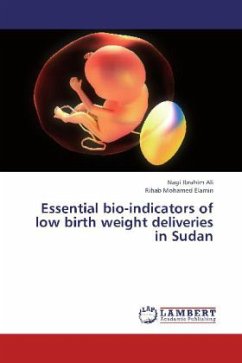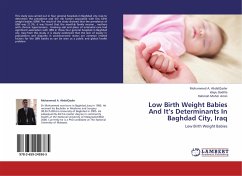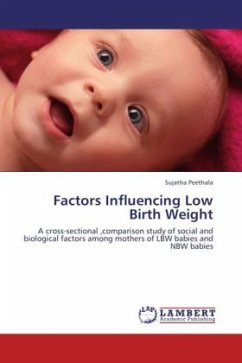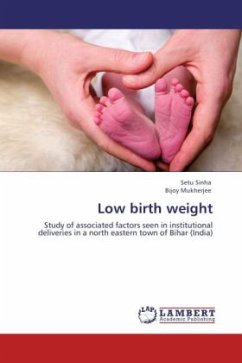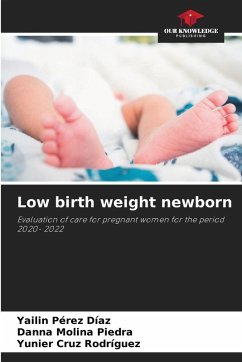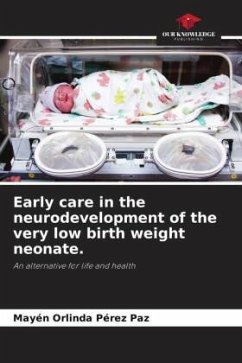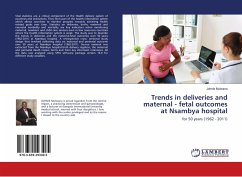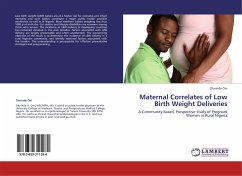
Maternal Correlates of Low Birth Weight Deliveries
A Community-based, Prospective Study of Pregnant Women in Rural Nigeria
Versandkostenfrei!
Versandfertig in 6-10 Tagen
32,99 €
inkl. MwSt.

PAYBACK Punkte
16 °P sammeln!
Low birth weight (LBW) babies are at a higher risk for neonatal and infant mortality and such babies constitute a major public health problem worldwide as well as in Nigeria. Most newborn babies weighing less than 1000 g at birth die. Cot deaths and lifestyle disabilities are common among those who survive. The incidence of LBW delivery in developing countries has remained elevated in the past decades. Factors associated with LBW delivery are largely preventable and often unattended. The overarching objective of this study is to determine the incidence of LBW delivery in a rural Nigerian commu...
Low birth weight (LBW) babies are at a higher risk for neonatal and infant mortality and such babies constitute a major public health problem worldwide as well as in Nigeria. Most newborn babies weighing less than 1000 g at birth die. Cot deaths and lifestyle disabilities are common among those who survive. The incidence of LBW delivery in developing countries has remained elevated in the past decades. Factors associated with LBW delivery are largely preventable and often unattended. The overarching objective of this study is to determine the incidence of LBW delivery in a rural Nigerian community, and identify maternal factors associated with the burden. This understanding is prerequisite for effective preventative strategies and programming.



